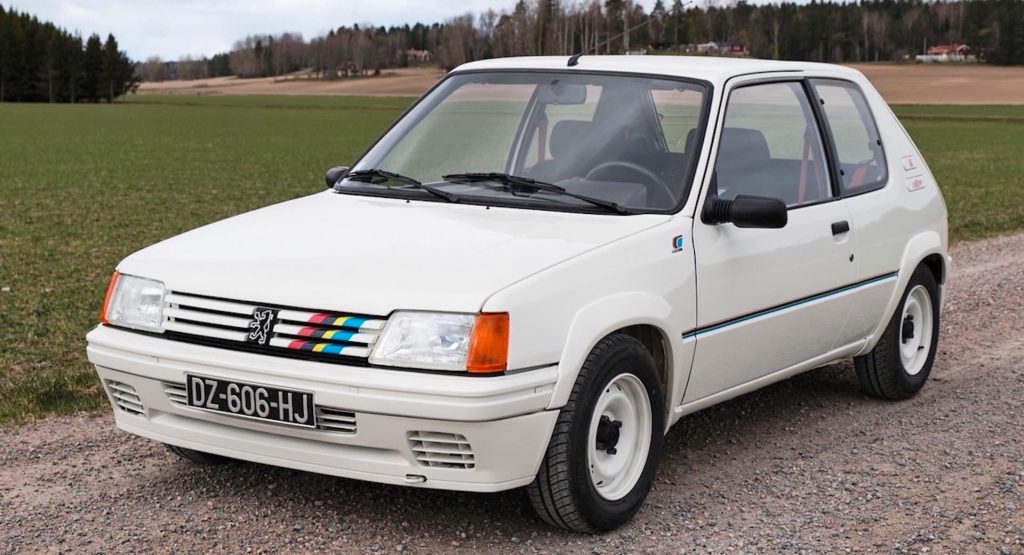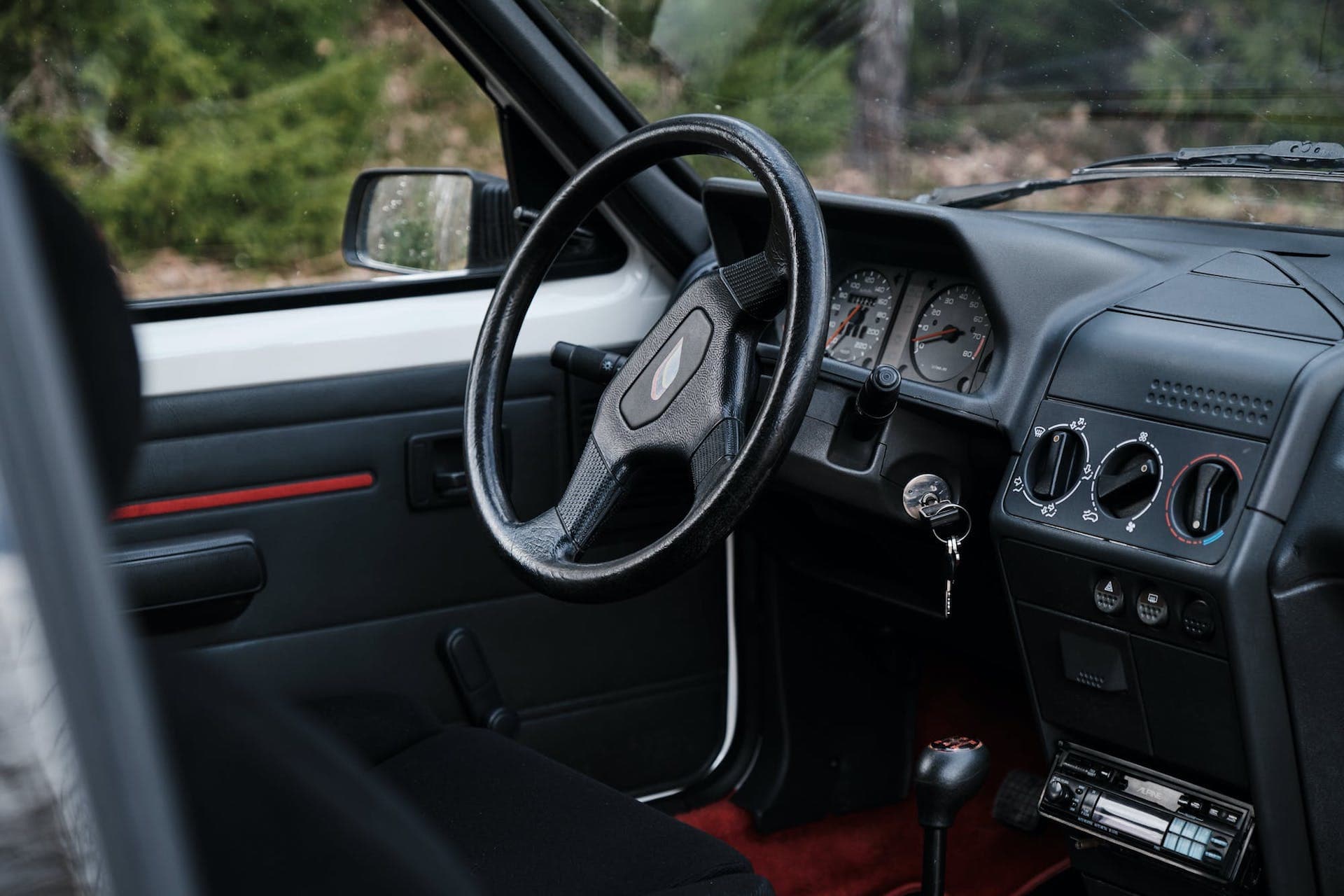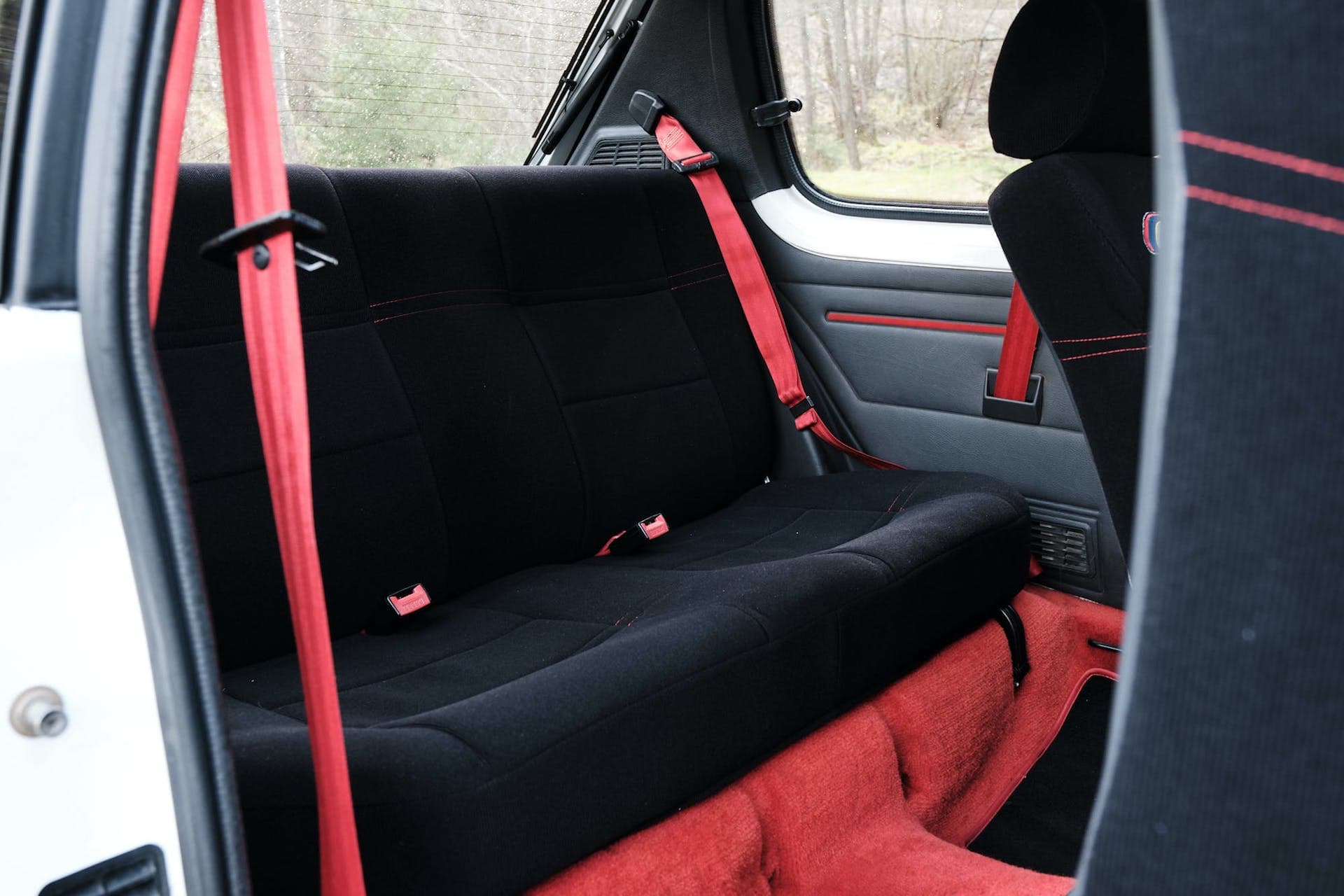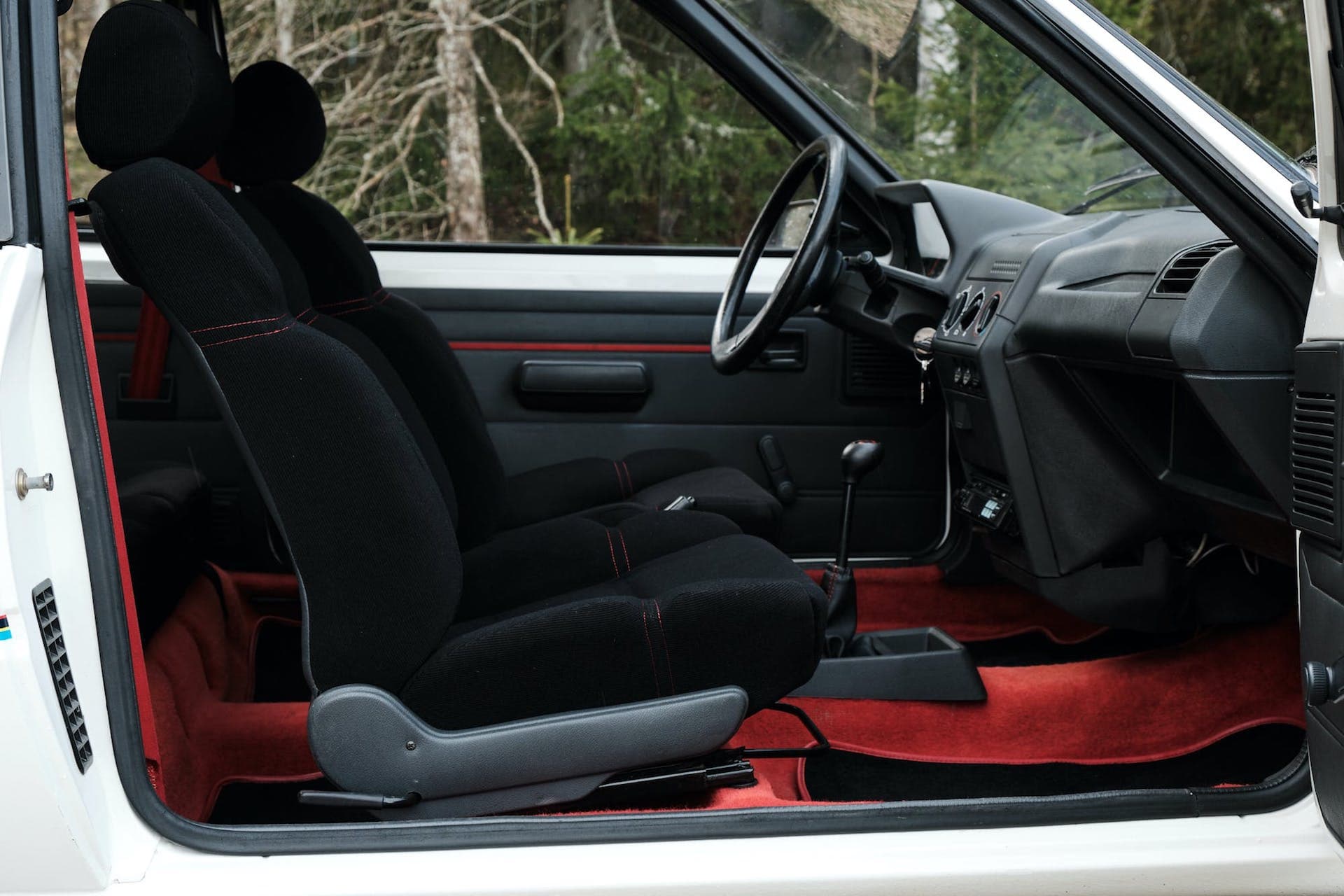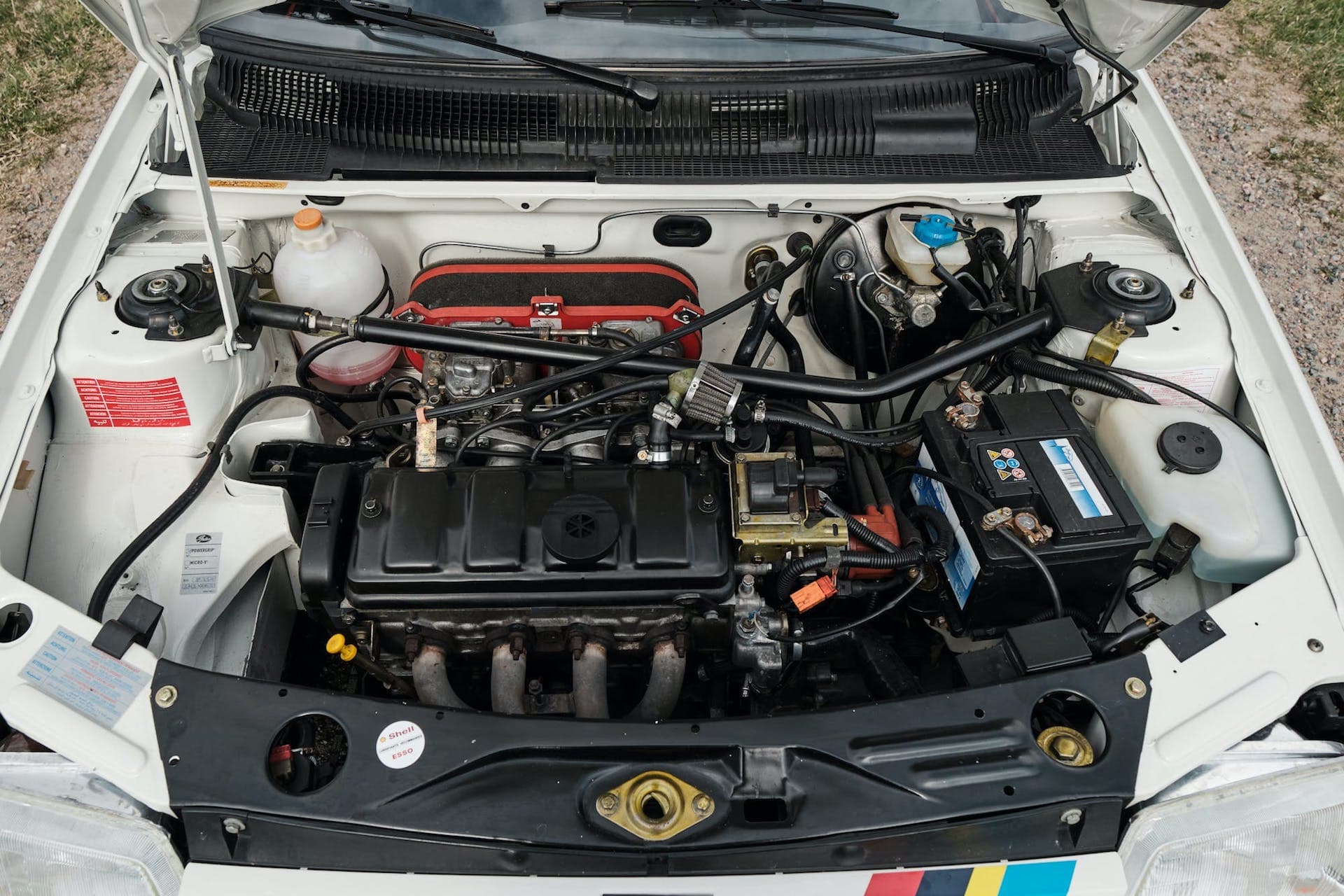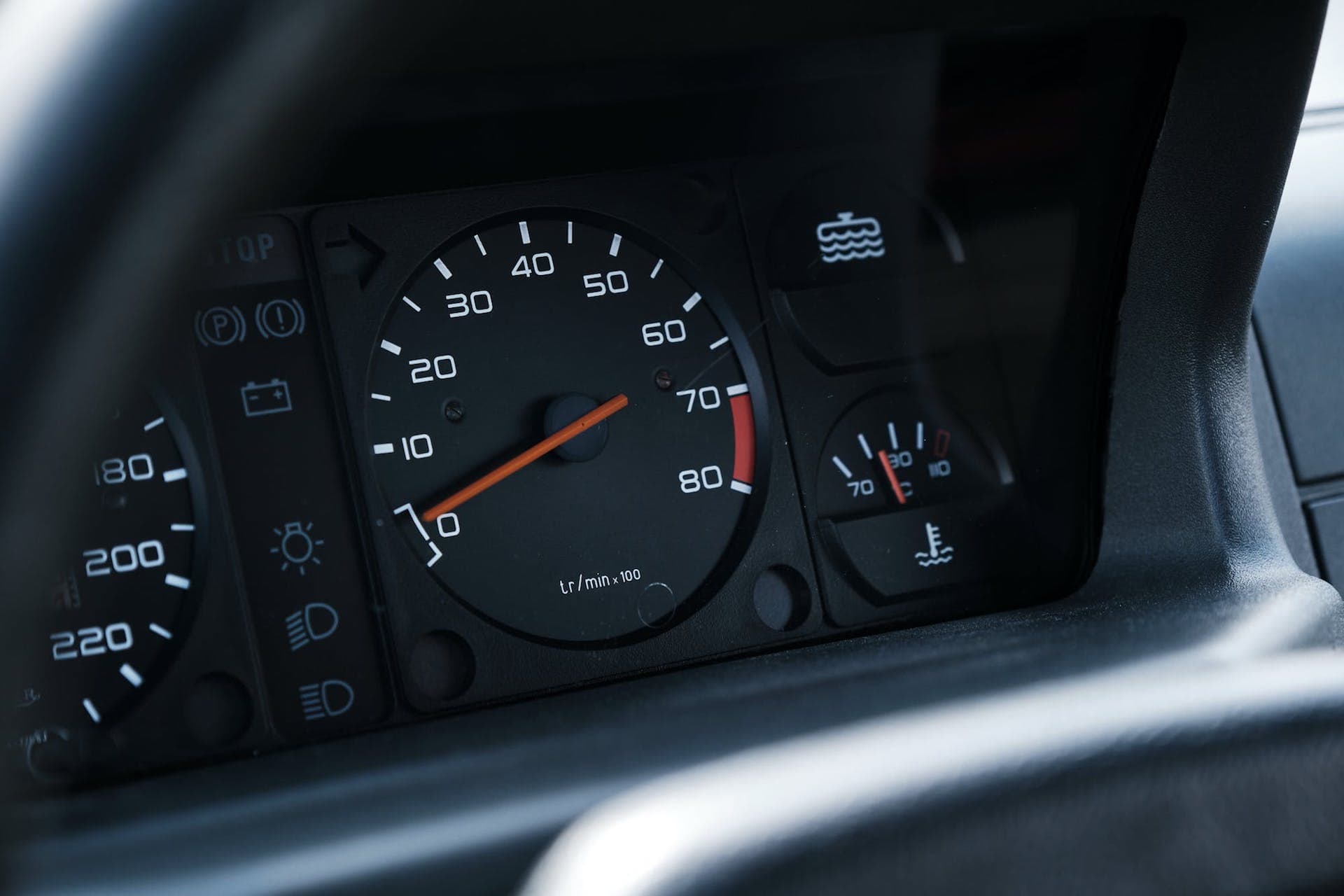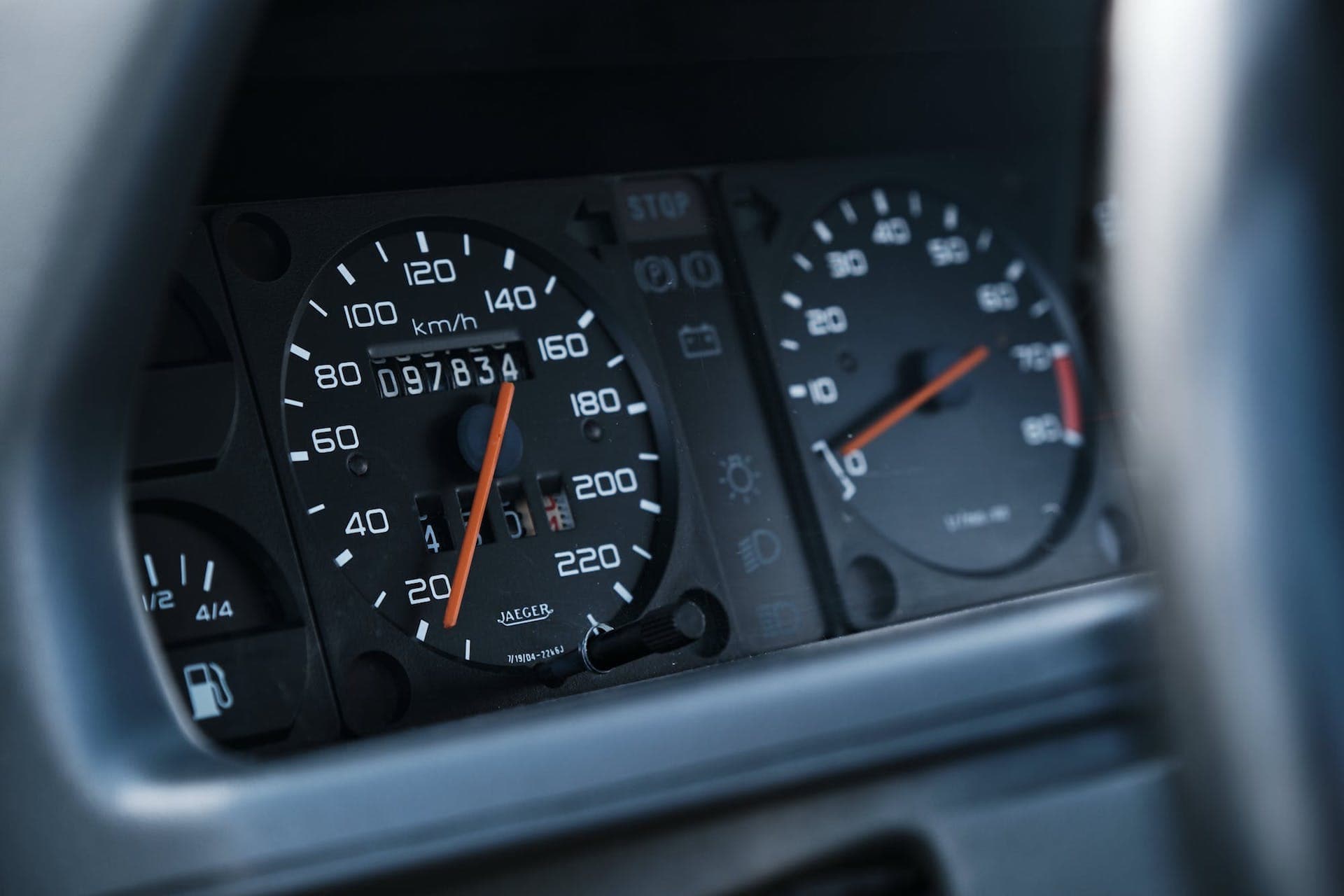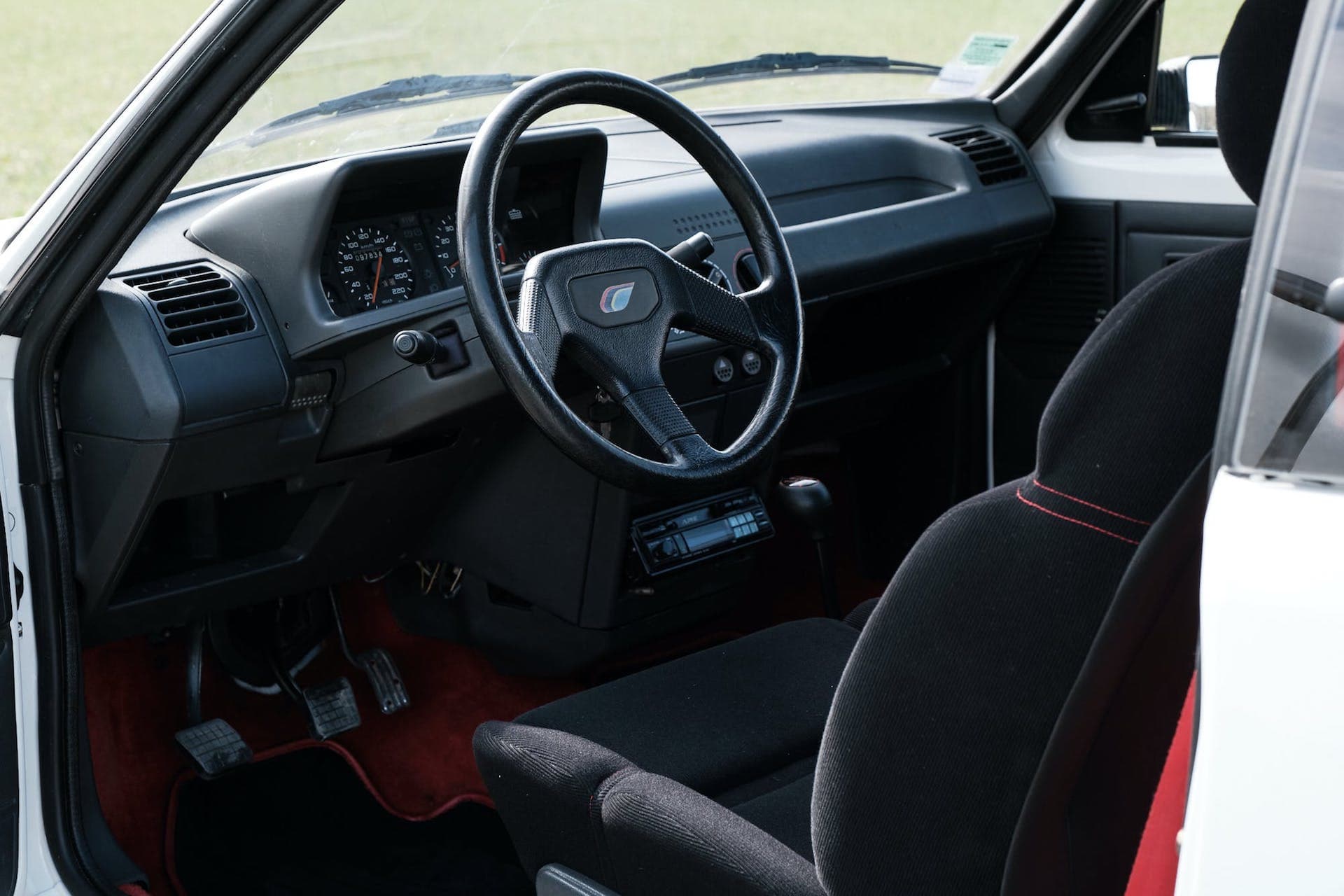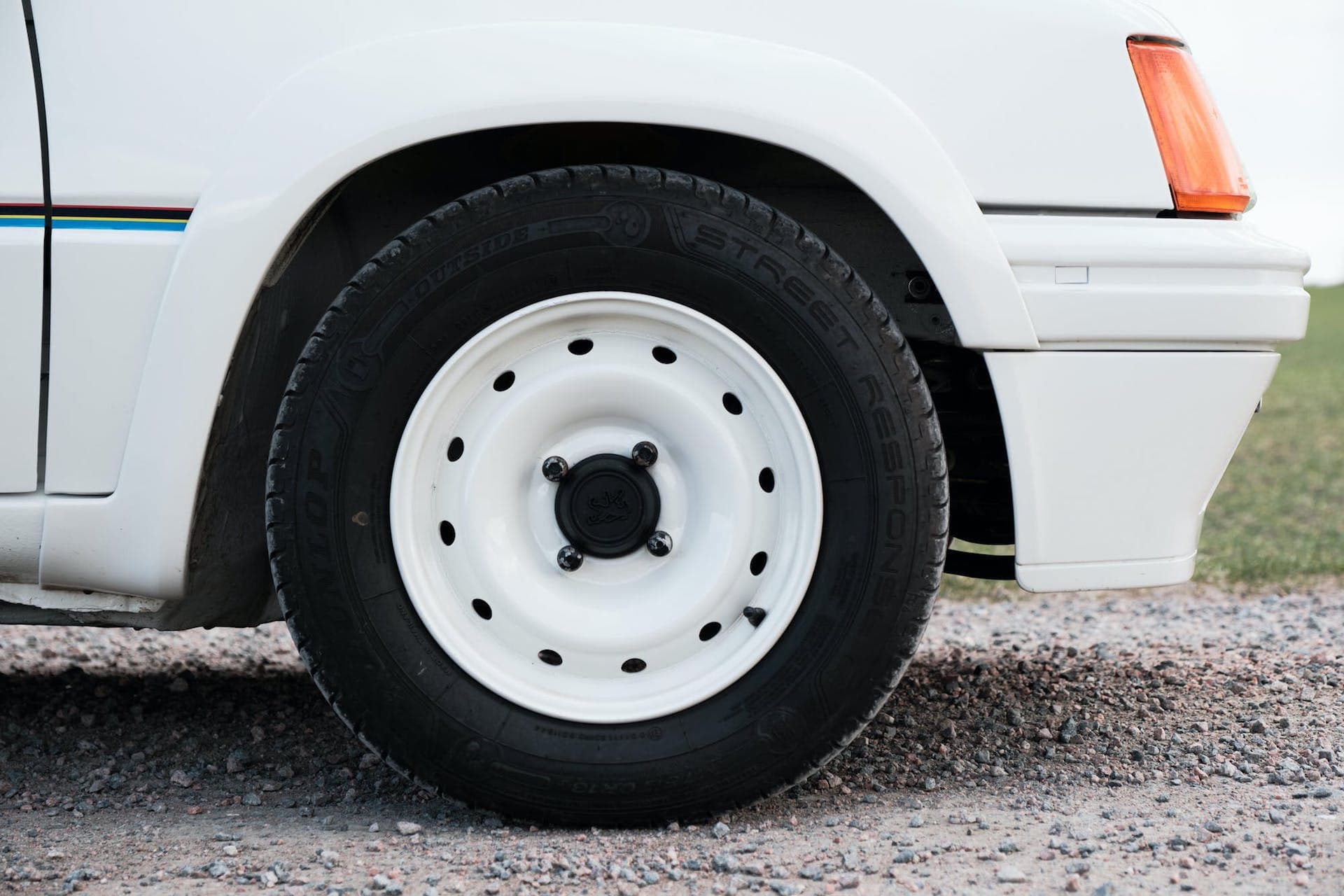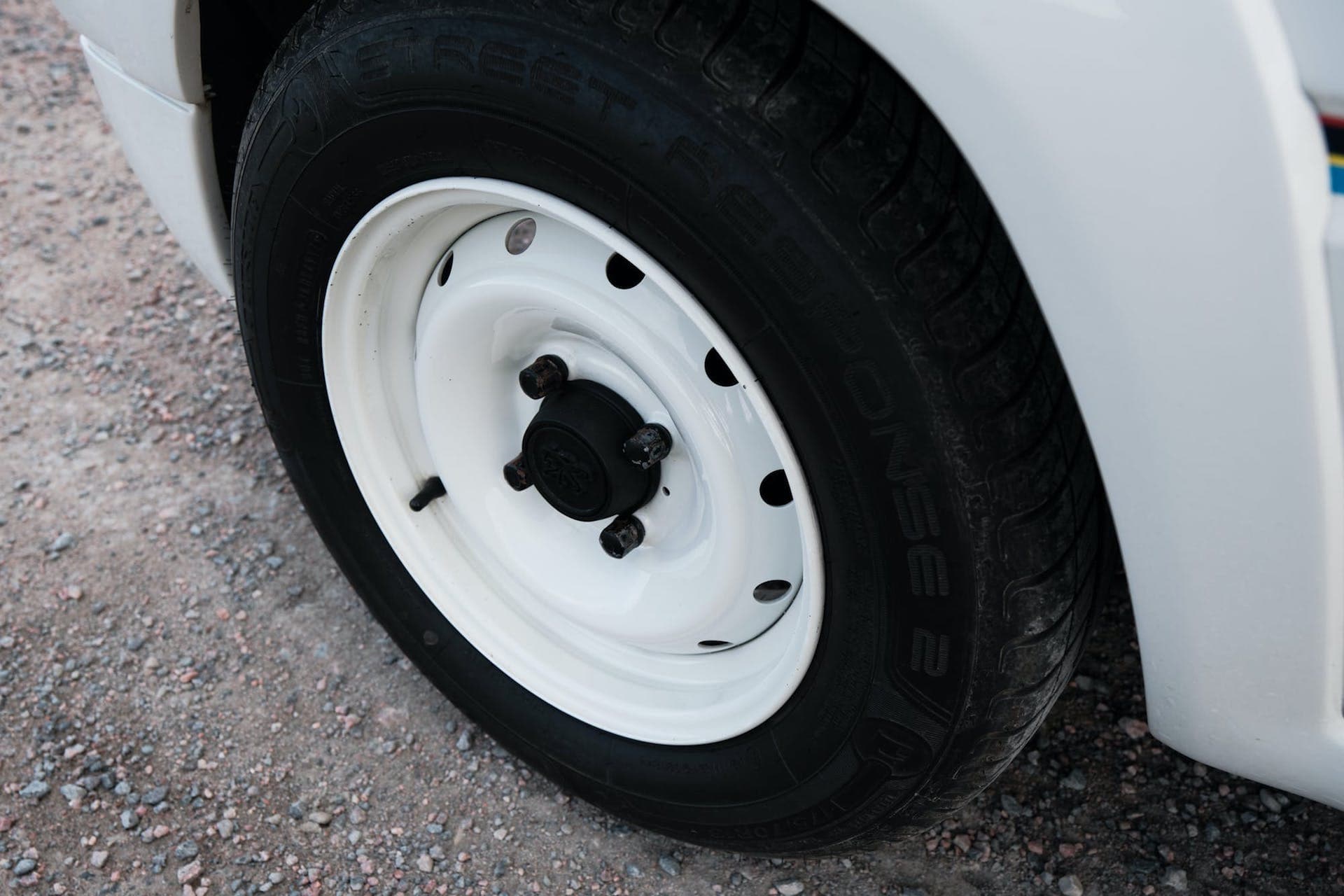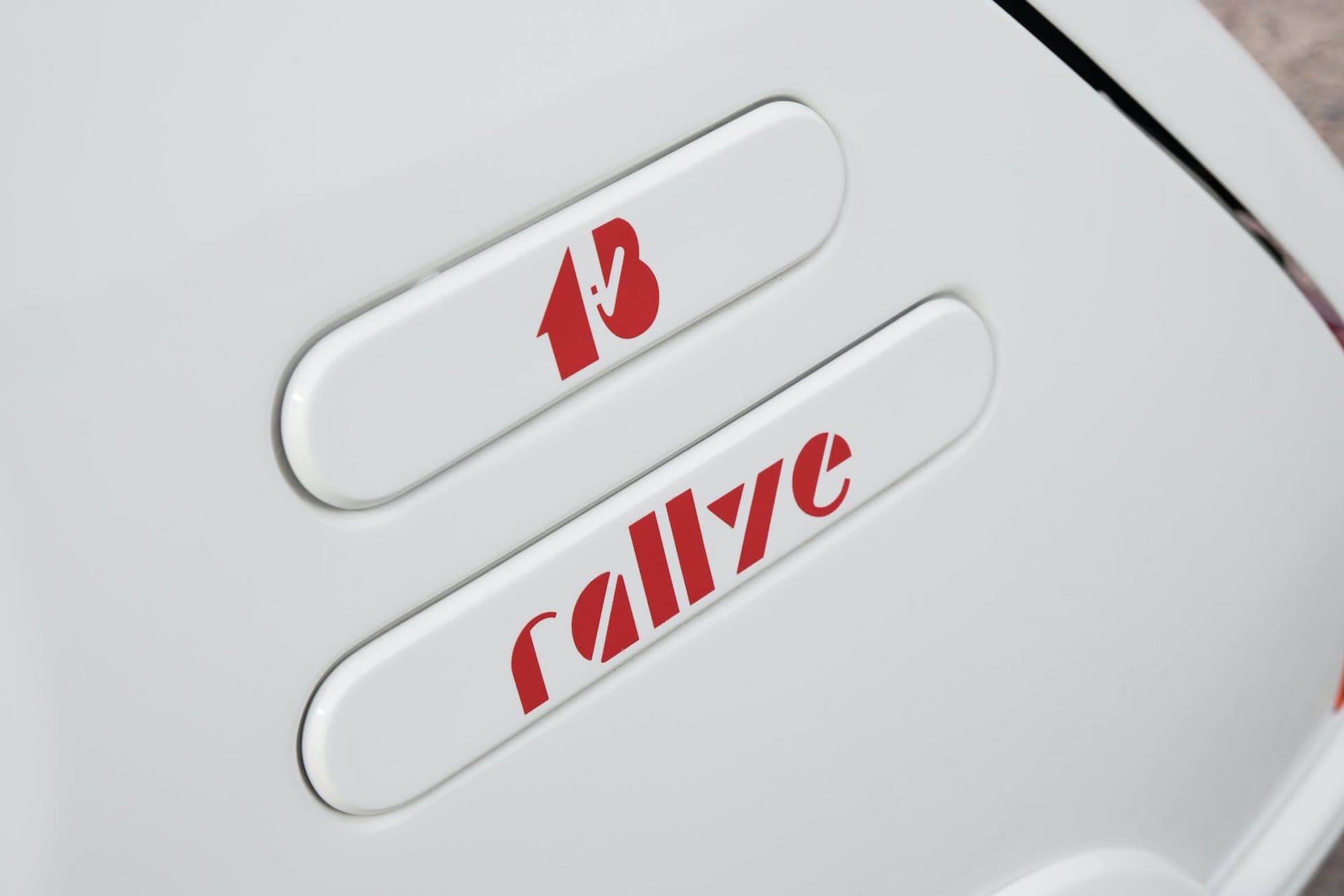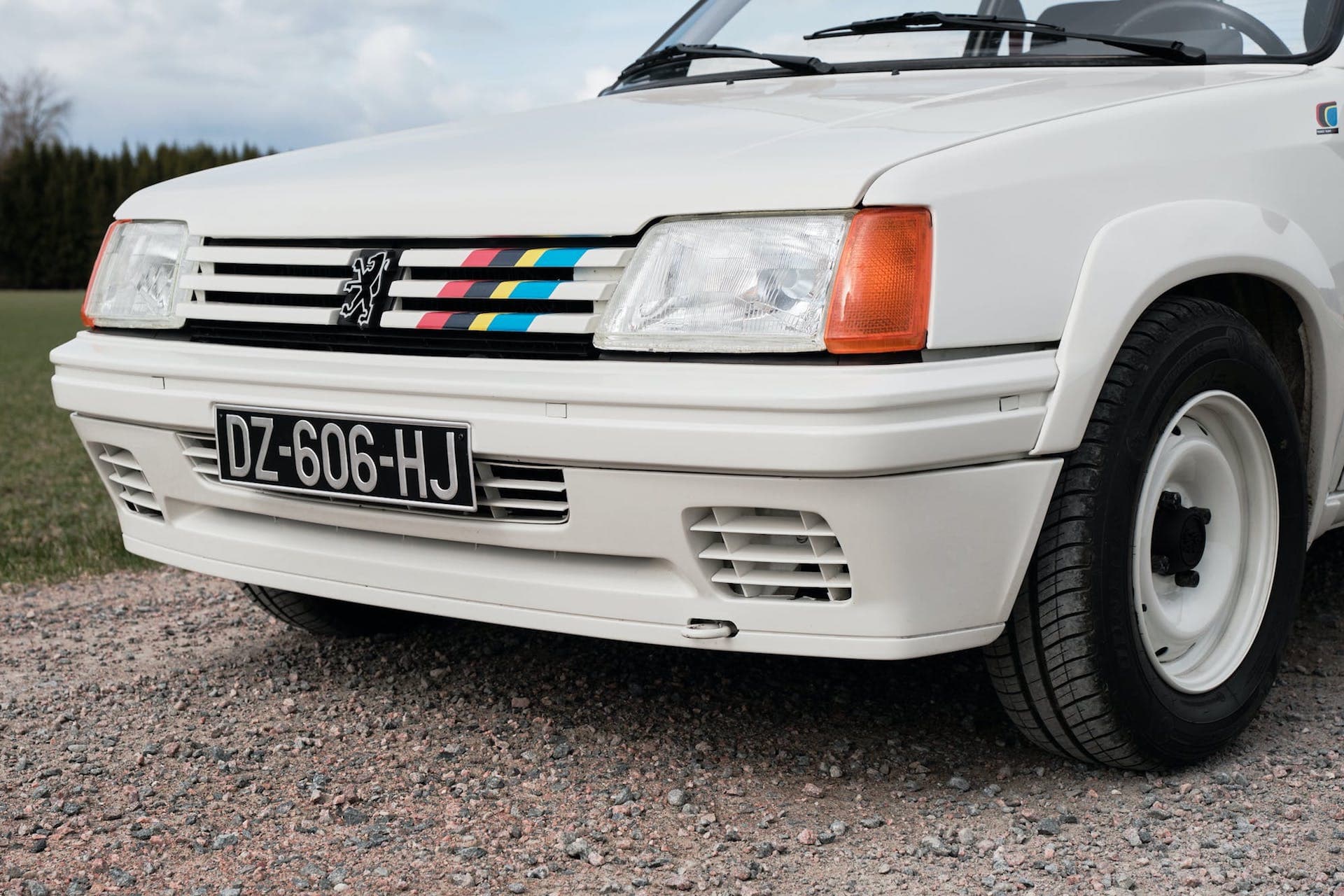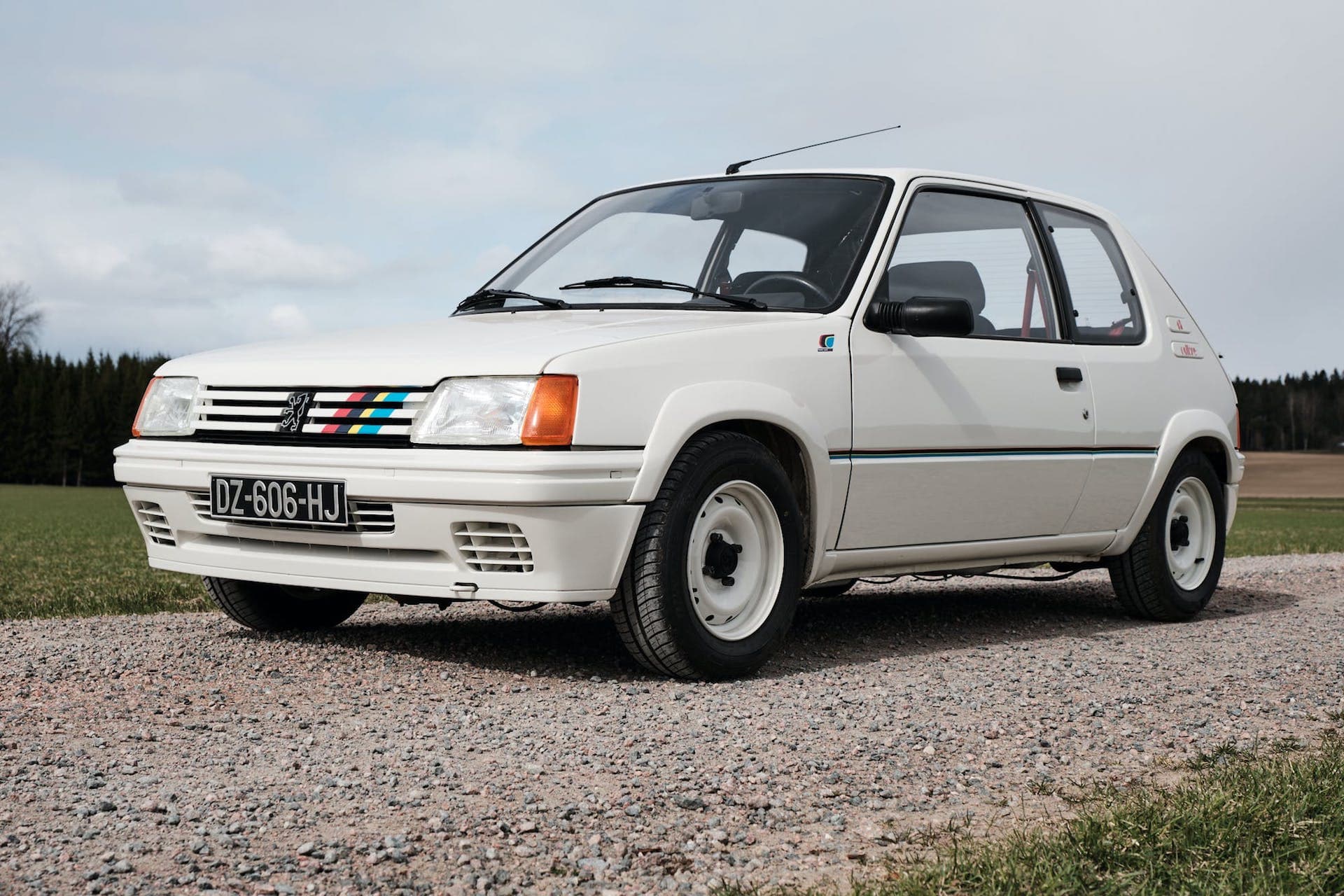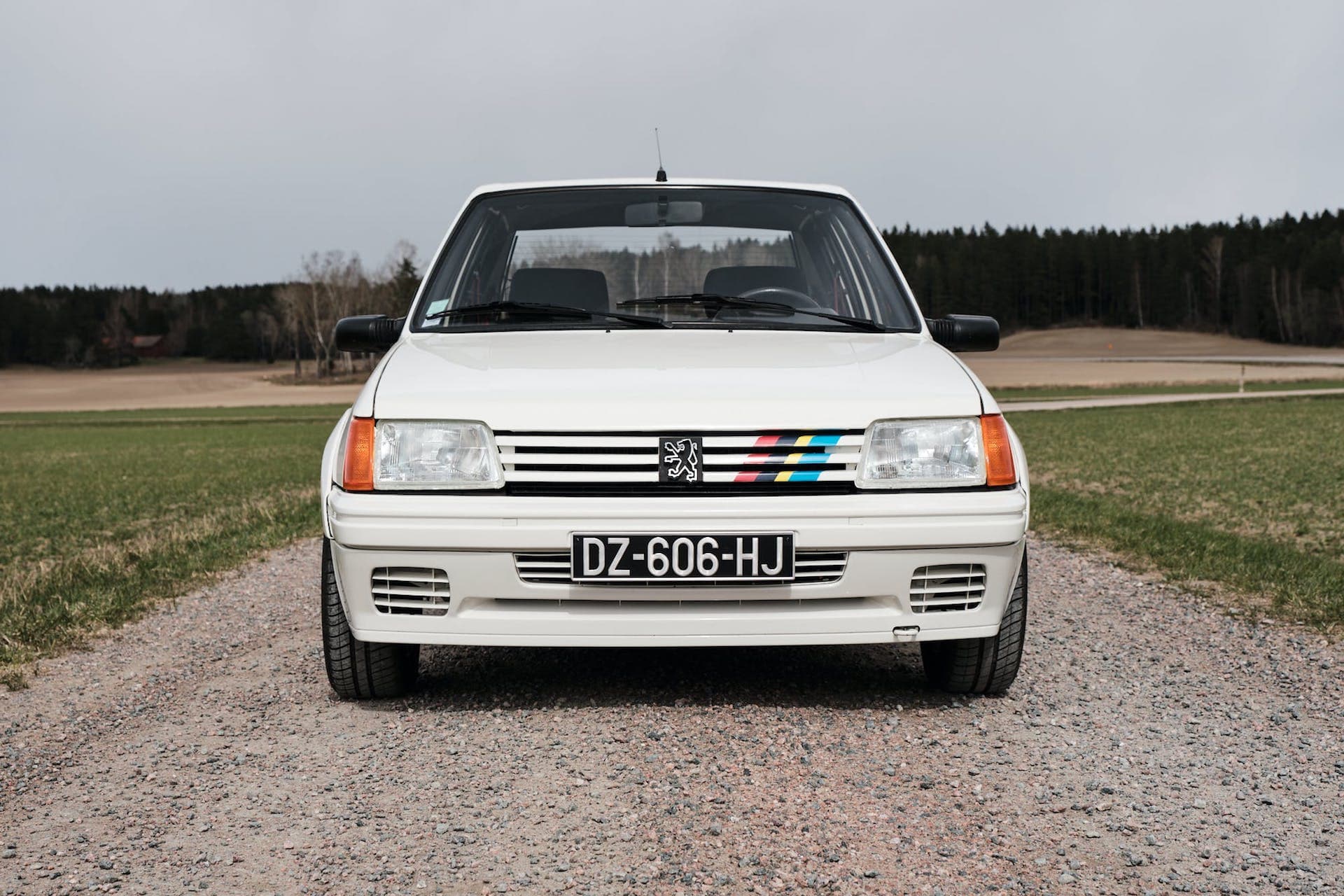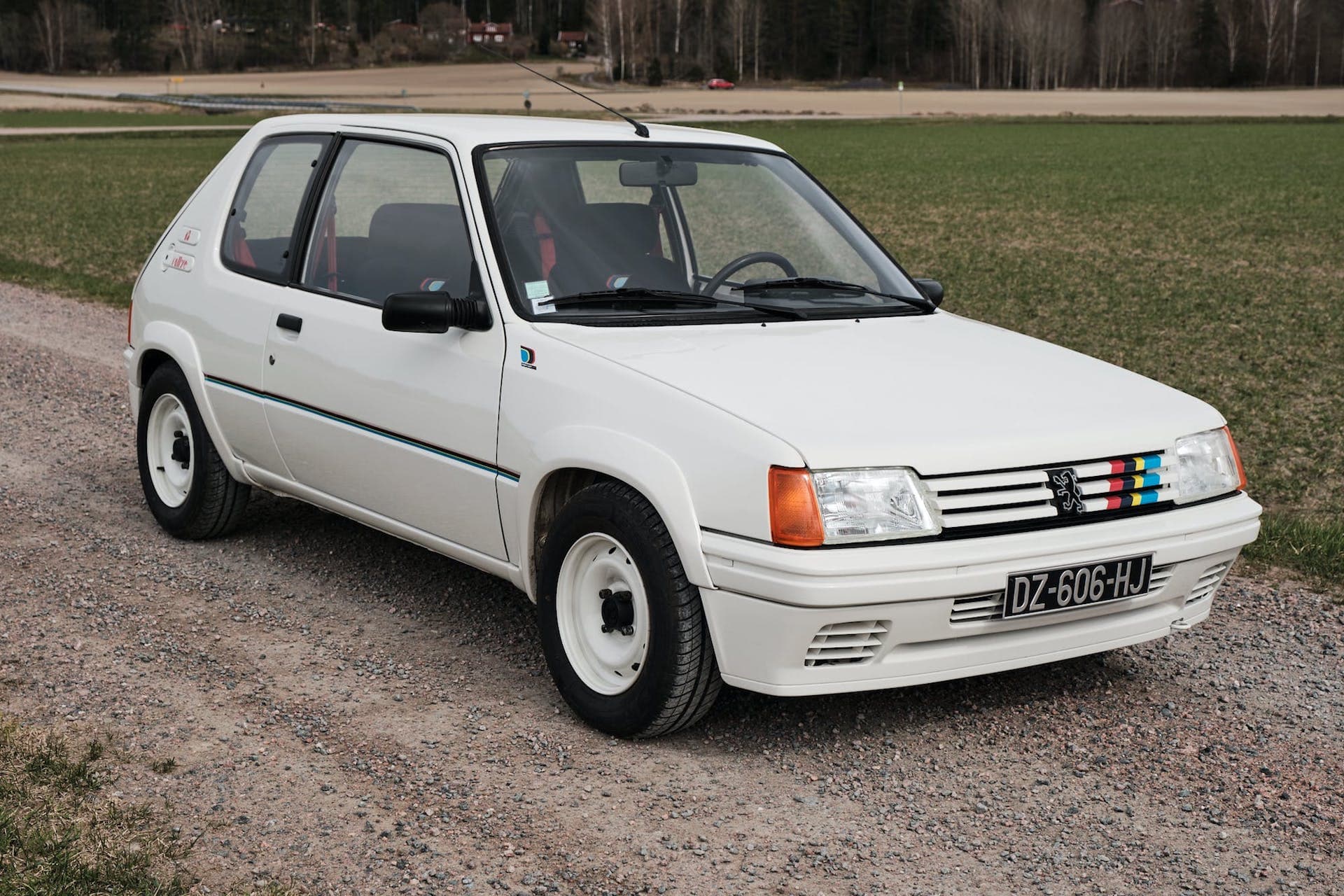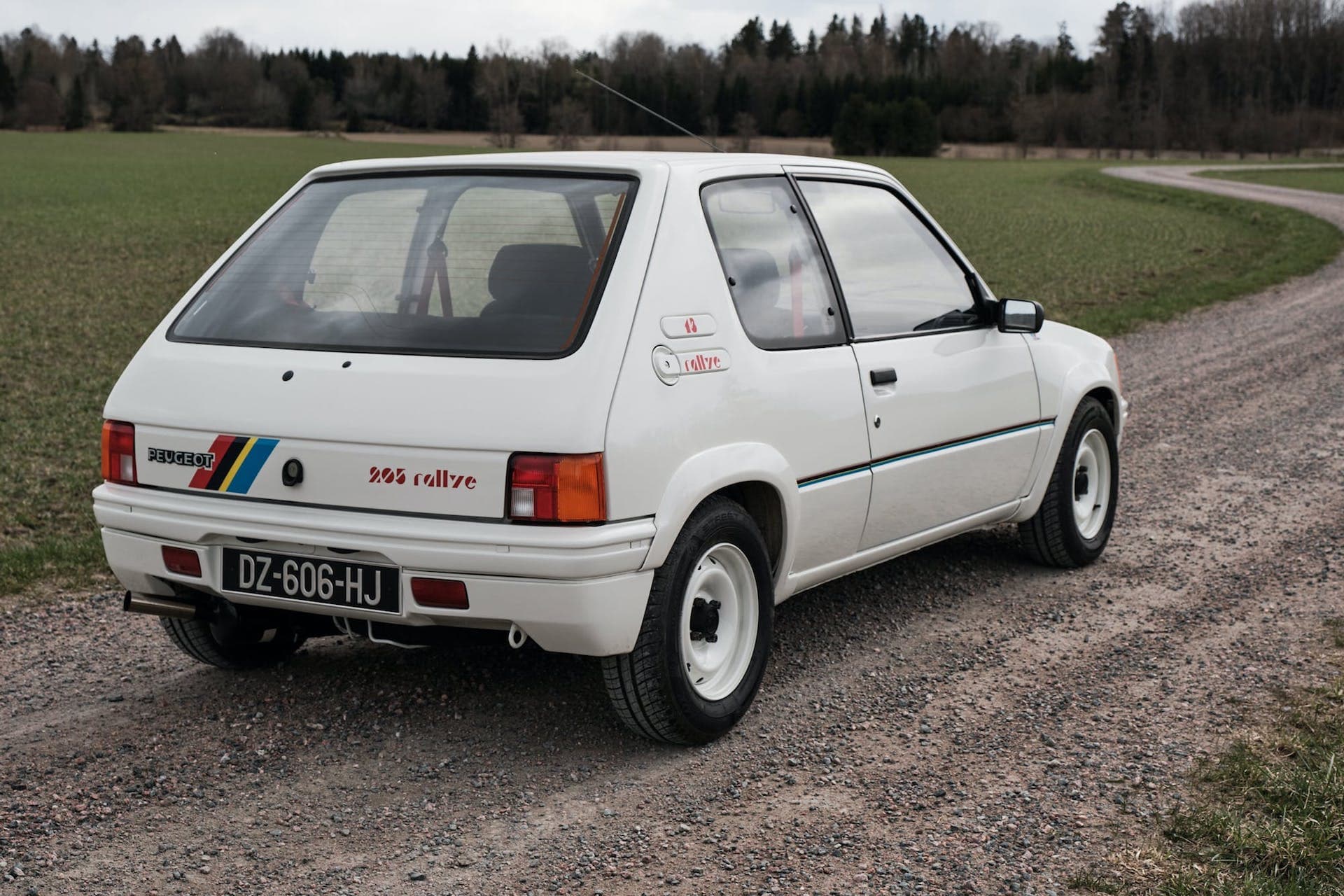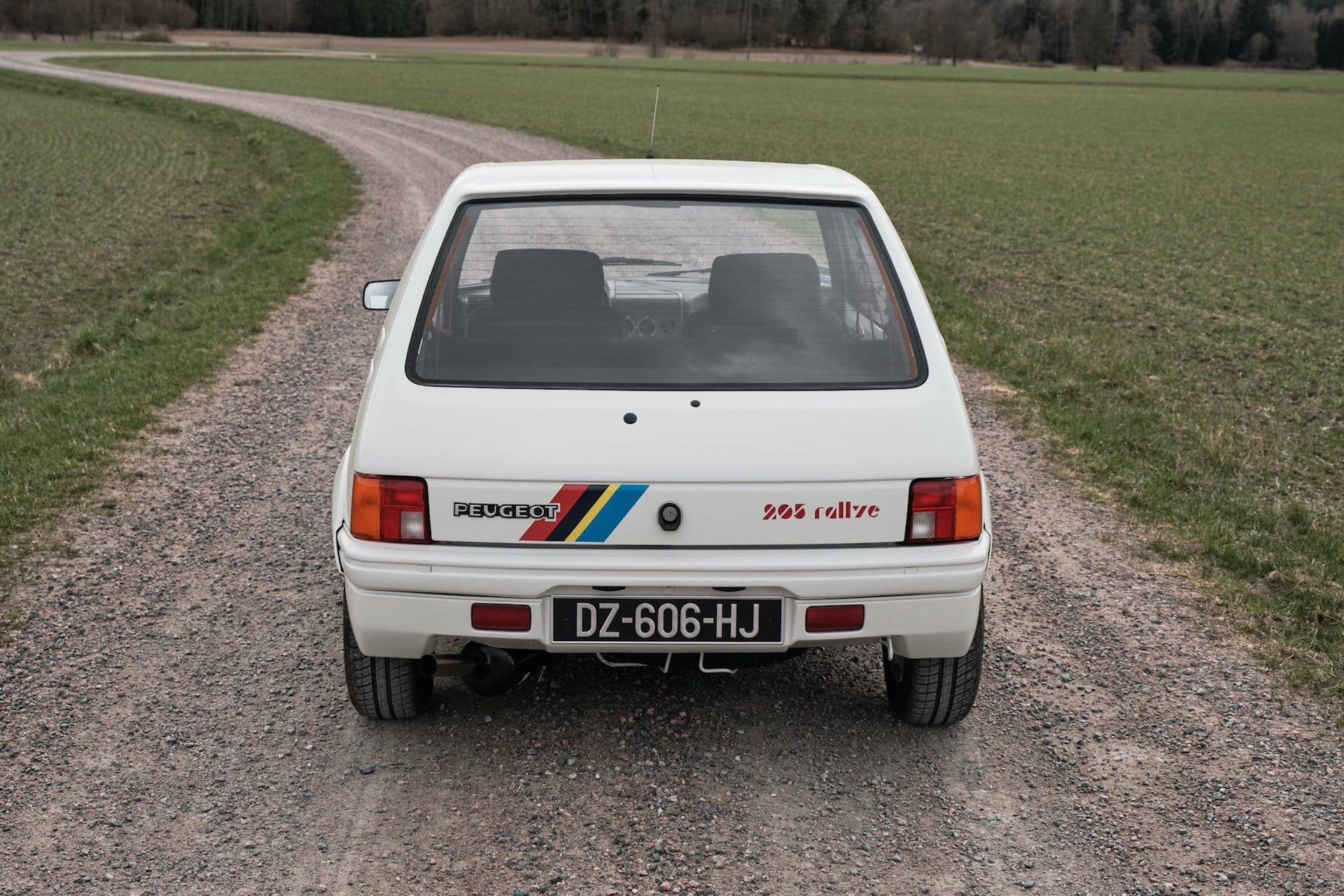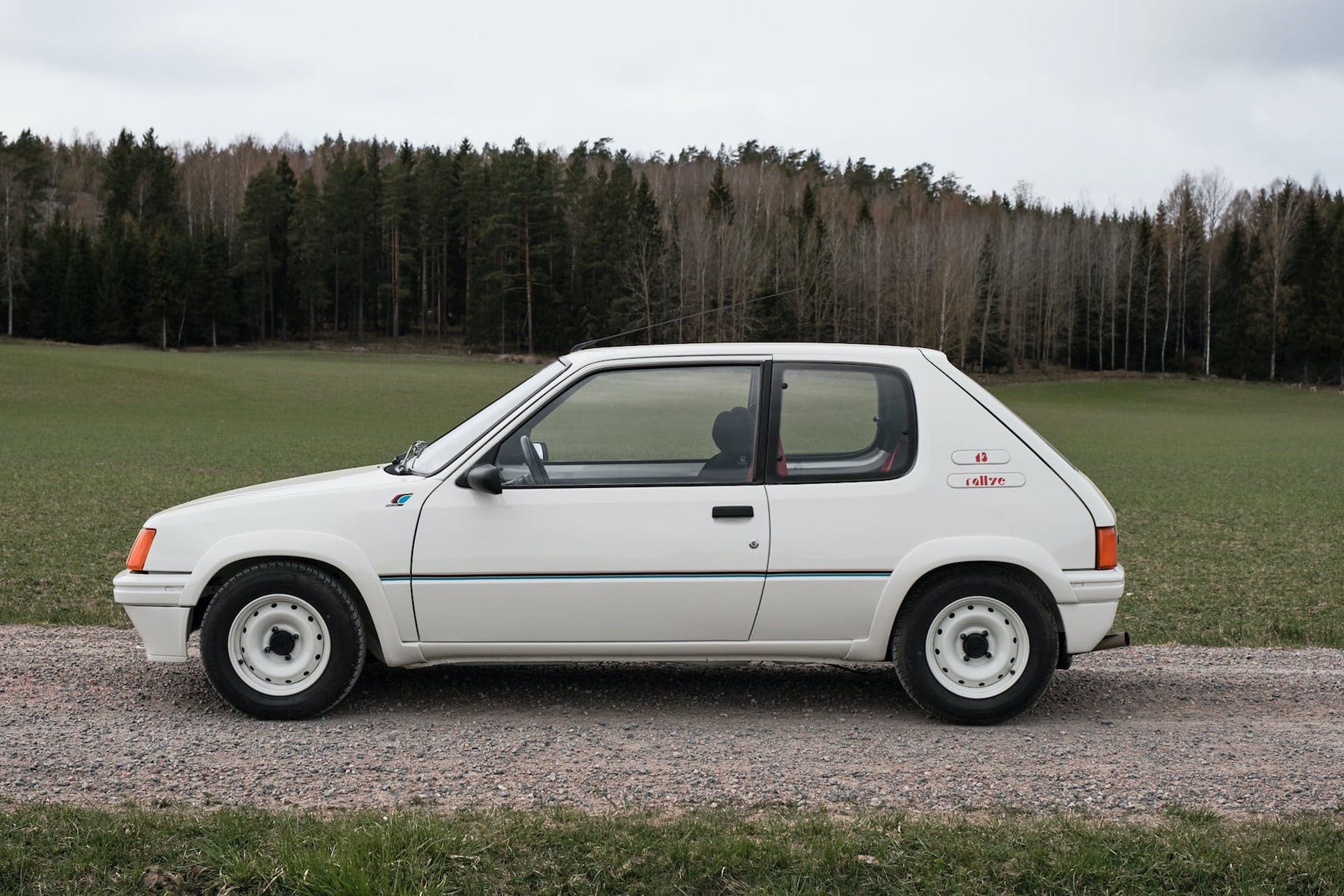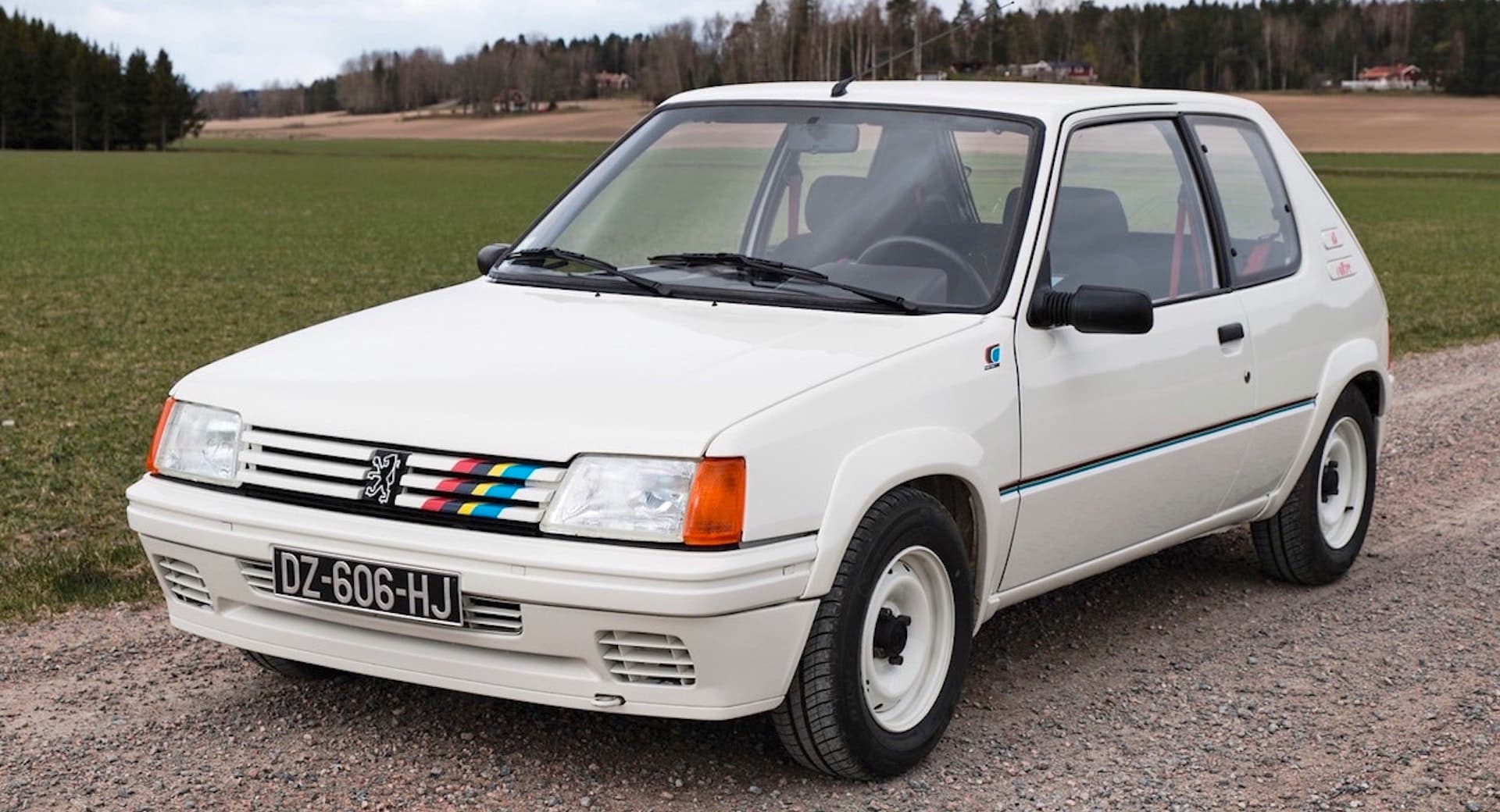What do the Ferrari 250 GTO, Porsche Carrera 2.7 RS, original Chevrolet Camaro Z/28 and more modern classics like the BMW E30 M3 and Lancia Delta Integrale have in common?
If you answered that they are all homologation specials, you’d be right. Motorsport rules requiring carmakers to build and sell roadgoing versions of machines they want to race have given us some of the greatest drivers’ cars of all time.
But if you answered that the link between those cars is that they’re all now out of the financial reach of many of us, we wouldn’t argue. The combination of motorsport pedigree and rarity means homologation cars usually command big bucks.
But not always. Meet the Peugeot 205 Rallye, little brother to the more famous, and far more numerous 205 GTi, and, as the name suggests a car built purely to win rallies.
Related: Mid-Engine Peugeot 205 Turbo 16 Celebrates Group B Rallying Halcyon Days
Aimed at the relatively affordable Group N class, the Rallye was very much a no-frills performance car. You got steel wheels, manual windows and mirrors, un-assisted steering and a bespoke 1294cc PSA TU engine custom designed to qualify for sub-1300cc competition.
Fitted with a hot cam that does nothing much below 4500rpm, and breathing through a pair of sidedraught Weber carbs, it makes 102 hp and 88lb ft. Not impressed? You’ll definitely be more impressed when you hear that those 102 horses only have 1748 lb (793 kg) to haul down the road.
It’s not overstating matters to say this little French subcompact is one of the purest driver’s machines on the planet, and now enjoys something approaching cult status, with fans including Top Gear’s Chris Harris.
The motorsport focus means many of these cars have been trashed but this 60,791-mile example up for sale on Collecting Cars looks great following a respray and a refurbishment of the original GTi-spec seats, the Rallye’s sole concession to comfort.
Based on previous sale prices we’d expect this to make somewhere between $15-20,000, which you might argue is a heap of money for a wispy bit of French tin. And sure, you could buy a much faster car for less. But think of it instead as the Porsche 911R of 1980s hot hatches, and an achievable way to get into a genuine homologation car without selling body parts, and it starts to make a lot more sense.




